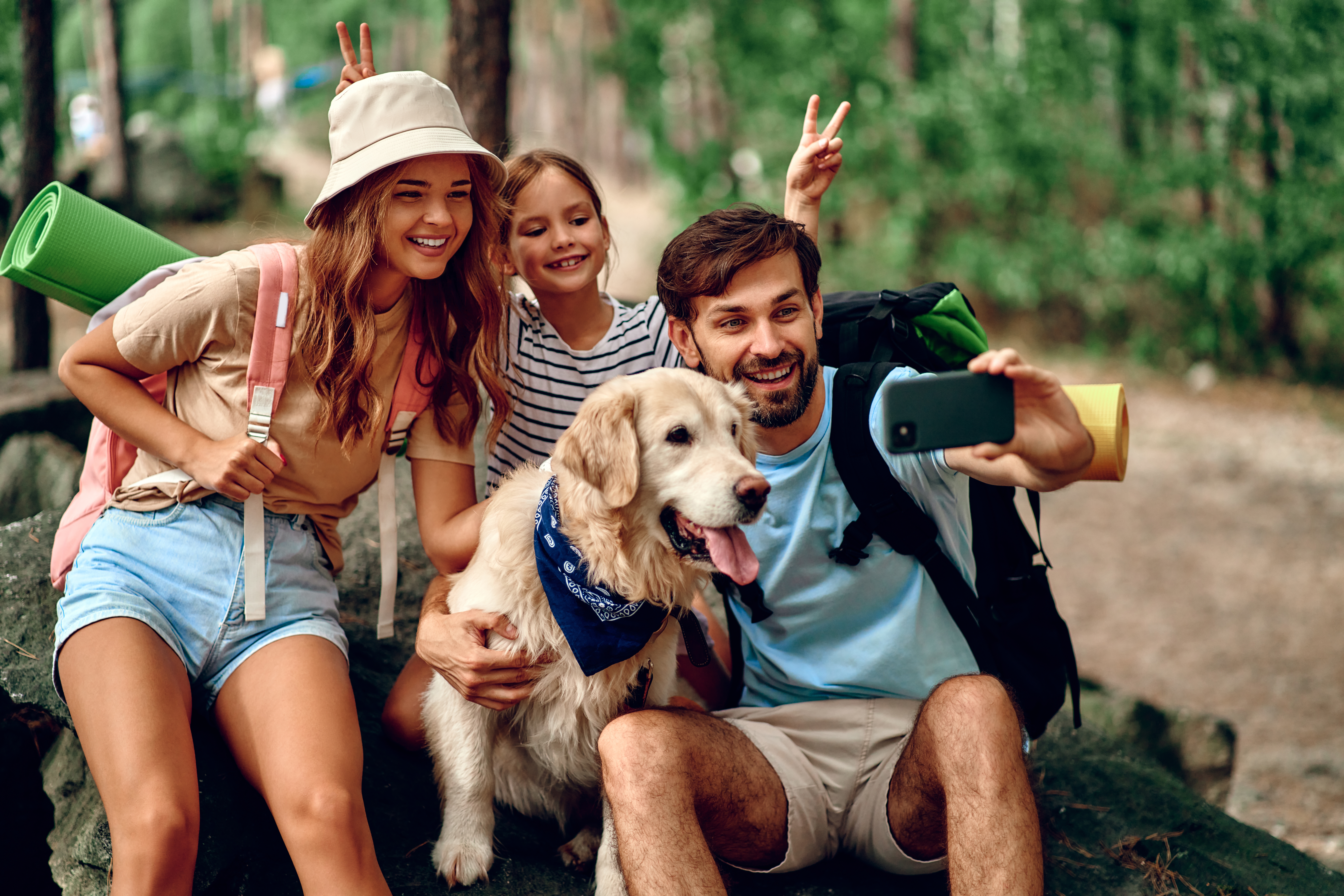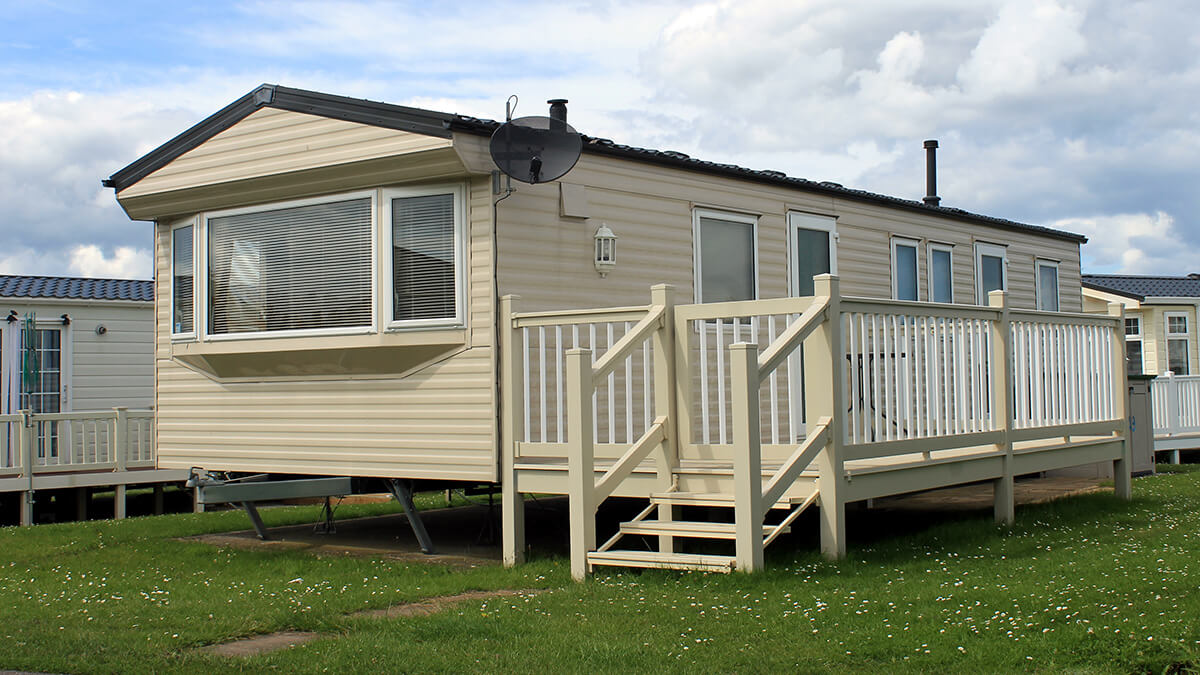Going Camping With Your Dog? Here's What You Should Know

Camping with dogs (and camping with pets in general) is a lot different than camping with a group of humans, or solo camping. But it can be a lot of fun!
That said, there are many things on a camping trip that can affect pets. There are car rides, other animals, bugs, other people and more! With all of that going on, there are some things you should consider.
Find a pet-friendly camping site.
While some campgrounds don't allow pets, there are many that welcome your furry friend. It might be a good idea to call ahead of time to make sure the campsite you want to go to allows pets. Additionally, you could ask about these specific things:
- Barking ordinances: Dogs bark. While most people and campgrounds understand this and don't mind it within reason, excessive barking may still be a problem. If your dog barks loudly and excessively (especially during the night when people are trying to sleep), you might be asked to find somewhere else to stay.
- Leash requirements: Many pet-friendly campgrounds enforce leash requirements to ensure the safety of your dog or pet, other campers and you. Leash requirements can vary, so contact the site you're interested in to see what their requirements are, if any.
- Aggressive behavior: If your dog or pet gets aggressive around other animals, you may need to leave them at home or with a trusted friend or family member.
Take your dog to the vet before your camping trip.
Here are some things you should look to address at the vet:
- Vaccinations: Most pet-friendly campgrounds will ask that your dog be up-to-date on vaccinations before entering their property.
- Grooming: Even though your furry friend will likely get messy, grooming can still be important. If you're going camping during a warmer month, grooming can help keep your dog cool. And trimming their nails can help ensure they don't get snagged on anything.
- Overall health: This goes without saying, but if your dog is ill, camping may not be the best idea right now. Ask your vet what they recommend.
- Microchipping: Most campgrounds don't require microchips, but if it's something you're comfortable with, it can help you find your dog or pet if they get lost while camping (or anytime).
- Flea and tick prevention: The great outdoors is home to many bugs, including fleas and ticks. Discussing prevention measures with your vet and choosing one that you are comfortable with can be very beneficial to your pet's health.
Camping with dogs checklist.
Here's a list of recommended items to bring on your camping trip, to ensure a good time for your dog.
- A leash
- Towels
- Dog toys
- A dog bed
- Vet records
- Doggy treats
- Dog waste bags
- A dog rain jacket
- A dog first-aid-kit
- An attachable ID tag
- An up-to-date photo
- Prescription medication
- Bowls for food and water
- A separate bag or bin for all your dog's belongings
How can I keep my dog safe while camping?
We know you're looking forward to having fun when you take your dog camping, but safety should always be your main concern. Here are some things you should consider:
- Watch out for overheating.
Dogs can overheat in the sun, just like us humans. If your dog has dark fur or a lot of hair, they may overheat faster than others. Try to keep your dog in cool areas if you can, and keep some cool water nearby. Additionally, always look out for these signs that they may be overheated:
- Panting
- Dry gums
- Agitation
- Weakness
- Restlessness
- Disorientation
- Heavy breathing
- Bright red tongue
If you notice your dog has any of those symptoms, take their temperature with the digital thermometer in your first aid kid (make sure you have one). If their temperature is 104 degrees Fahrenheit or greater, move them to a cool location immediately, and consider seeking emergency medical assistance.
- Think about paw protection.
Your dog's paws might be sensitive to certain temperatures and materials like:
- Sharp rocks
- Ticks and pests
- Agitation
- Hot pavement
- Salt-melting ice
- Cold and wet ground
- Broken glass and other trash or debris
It may be a good idea to use paw protectant or get your dog a pair of booties. If they've never used any, it may help to let your dog get used to them ahead of time.
- Don't forget to bring your dog's ID.
Even if you have your dog microchipped, making sure your dog has a physical ID tag is extremely important. This will help people contact you if they find your furry friend. You can also have a temporary ID that includes your campsite number, just in case.
Other things to consider when camping with your dog.
- Never leave your dog unattended.
Whether you're in the car, at the campsite or anywhere else, you should keep your dog close to you at all times. Even if they usually behave well around others, you never know what could happen.
- Prepare your dog in advance.
If your dog is not used to being outdoors for extended periods of time, it can help to prep them ahead of time. You can do that by:
- Taking them on longer walks
- Spending more play time outside
- Have a backyard campout at your home
- Take them on play dates with other dogs
- Can dogs sleep in tents?
While tent camping with pets can be challenging, it's possible. Here are some things to keep in mind:
- Tent size: A bigger tent might provide a better experience for all parties involved. This is especially true if you have a big dog.
- Security: You should always zip your tent before you go to sleep, so your dog doesn't escape. If you want to take extra precautions, you can use your luggage to block off the exit.
- Noise: If your dog is sensitive to noise, it may help to turn on a battery-powered fan to provide some white noise and mask the sounds.
- Make it like home: You should try to make your tent feel as close to home as you can for your dog. For example, if they usually sleep in a dog bed, consider bringing that bed. If they always lay on or under a certain blanket, consider bringing that too. If they sleep in a dog crate, it may help to use a tent that can accommodate that crate.
- Temperature: If it's extremely hot or cold, it may be best to avoid tent camping with your dog. An RV or other lodging site may be a better option.
- RV camping with dogs.
Here are some tips for RV camping with your dog:
- Give your dog a designated space in your RV
- Ensure your dog has space to move around safely
- Make sure the RV is well ventilated
Good luck to you and your dog on your camping trip!


